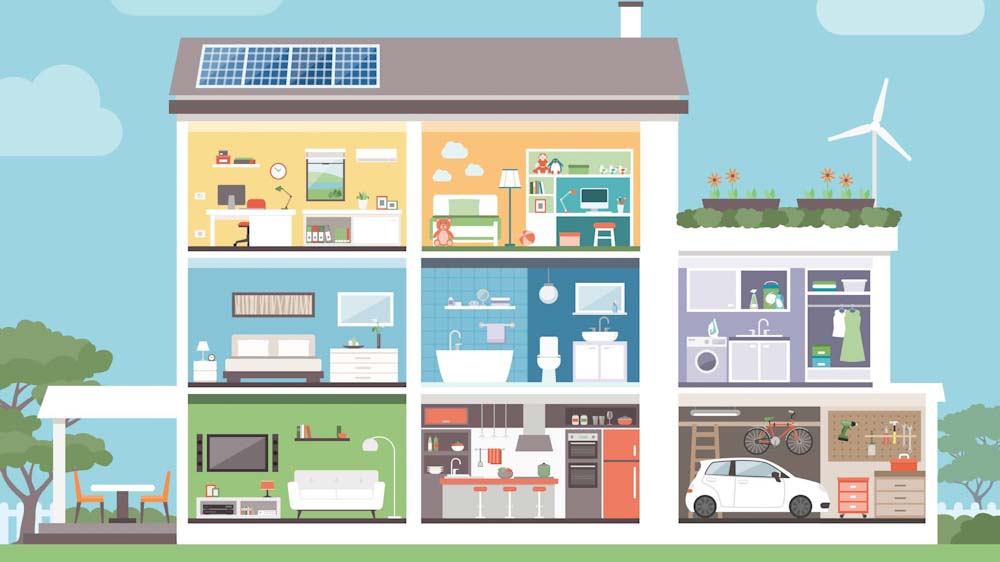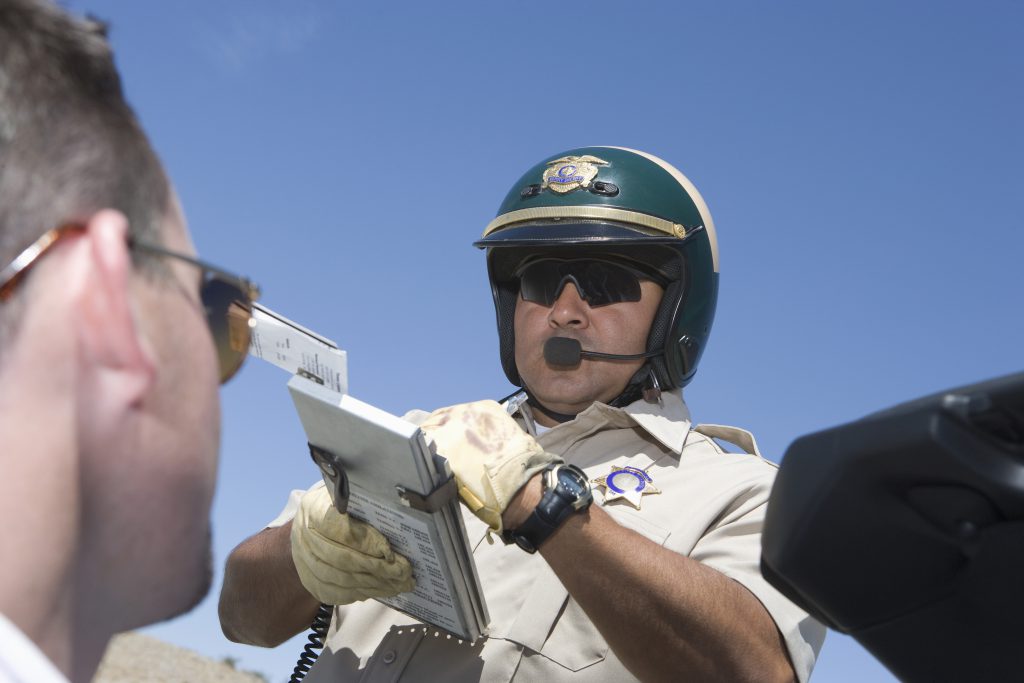Whether your student is emigrating abroad or just going on vacation, use this vocabulary to help them deal with practical situations. You’ll find vocabulary sets about renting a home, hiring a car, dealing with car problems and insurance, and dealing with technology issues.
You’ll also find a picture worksheet and conversation questions to practice the target language.
Renting a home
The estate agent/ realtor – the person who connects you with the owner of the property.
Flatmates/housemates – people who you live with to share the bills, who are not romantically connected to you.
Furnished/ unfurnished/ semi-furnished – whether the property has furniture or not.
Household/domestic appliances – smaller appliances like the vacuum cleaner, kettle, blender etc.
The landlord/landlady – the person who owns the property which you rent.
To rent a house, flat or apartment
To search for a house in the property listings – the adverts online or in the newspaper for properties.
‘Nowadays most people find a home on property sites like Rightmove.’
Tenant – the person renting the property.
Advanced
To let a house or flat – another way to say ‘to rent.’
To move in to a house/to move out of a house, a move (noun) – the process of moving house.
White goods – large domestic appliances like the fridge, washing machine or dishwasher (which are typically white)
Utility bills – your heating, electricity or water bill.
Contracts
The deposit – the amount of money that you give to the landlord or lady in case you break something. At the end of your tenancy you will get it back minus any deductions for breakages.
‘In the UK, a deposit is usually one month’s rent. It is put in a government account so that the tenant has more protection.’
To draw up a contract – to write a contract.
Irregular verb: Draw, drew, drawn.
‘She liked the house and so the landlord and estate agent drew up a contract that afternoon.’
Tenancy contract – the contract to rent a house.
People to contact when there is a problem
A handyman – general repairs.
‘Handymen will fix small problems in a house like door fittings.’
A plumber – to fix the kitchen, bathroom and pipes.
An electrician – to fix electrical items.
A heating engineer – to fix the boiler or heating.
Speaking practice
Ask your student to tell you all the steps to renting a house in their country from searching the listings, signing a contract, moving in and setting up utility bills.
Speaking practice
Here are some questions to practice the target vocabulary.
- Is it easy to rent a house in your city? Is the system fair do you think?
- Can you tell me about any problems or issues you have had while renting a property?
- Have you liked your landlord/ landlady when you have rented in the past or have there been issues?
- Tell me a funny story about a flatmate.
Worksheet: House interior

Ask your student to name these rooms in a house and the contents.
PDF download: House interior
Hiring a car
To hire a car – to rent a car.
‘”To hire” is often used for short-term rentals such as cars and “to rent” is more commonly used for long-term rentals such as houses.’
A short-term hire/ a long-term hire – the length of the car hire.
To sign a contract
To take a deposit – the money you must pay to cover the cost of any damage or petrol used. You should get this money back if your car is fine at the end of the hire.
To pick up a hire car – when you first get the car.
To take back a hire car – when you return the car.
Insurance
To be covered by insurance – you don’t pay for damage because you have insurance for your car.
To claim on insurance – if you damage the car you can ask the insurance company to pay to repair it.
The excess – the amount you must pay yourself for the damage, if you claim on insurance.
‘Typically, hire car companies ask people to pay an excess of £250 before they can claim on insurance.’
A no-claims bonus – if you never claim on insurance you get a no-claims bonus which means your insurance is cheaper.
‘My mother has been driving for 20 years and never had an accident. She gets a big no-claims bonus every year.’
Car parts
Intermediate
Bonnet (UK)/ hood (US) – the front of the car, where the engine is.
Boot (UK)/ trunk (US) – the back of the car where you put baggage.
Bumper – the part the protects the car from damage.
Gear stick – the stick used to change gear.
Hand break – the break you operate with your hand.
Headlights – lights at the front of the car.
Steering wheel – the interior wheel which turns the car left and right from the verb ‘to steer.’
Tires (US)/tyres (UK) – the black, rubber parts of the wheel.
Tail-lights – lights at the back of the car.
Advanced
Fog lights – very bright lights for when it is very dark and there are no other cars on the road.
Hub caps – the metal coverings in the wheel.
Indicator lights – the lights that come on when you’re turning left and right.
Windscreen – the glass at the front of the car.
Windscreen wipers – the sticks which clean the windscreen in wiping motion.
Wing mirror – the mirrors at the side of the car.
Speaking practice

Ask your student to name all these car parts in these pictures. As a bonus, can they name these traffic signs and lights also?
PDF download car exterior and interior
Car problems
Intermediate
To break down – when your car stops working.
To bump into something – a small impact during an accident.
‘I was reversing and I bumped into a lamppost.’
To crash – a large impact.
‘He was driving too fast and crashed into a tree.’
A flat tyre /tire – when the tyre deflates because it has a puncture.
‘I drove over glass and got a flat tire.’
A tow truck – when your car breaks down you must wait for a toe truck to repair it or tow it away.
‘His car broke down on the highway and he had to wait two hours for a toe truck.’
Advanced
A crack in the windscreen – a break in the glass which looks like a line.
‘A stone hit the windscreen and cracked it.’
A dent in the bodywork/ to dent the bodywork – a concave mark where the driver has bumped into something.
‘He drove into a parked car and dented the bonnet.’
A scratch in the paintwork/ to scratch the paintwork – a line or mark where you have damaged the paint work.
‘She passed a pillar too closely and scratched the paintwork.’
Fines and paperwork
To be roadworthy – an adjective to describe whether your car is fit to drive.
Car tax – the tax you must pay for your car each year.
To fine someone (verb) – to ask a someone to pay money because they have committed a driving offence.
To get caught speeding – when you are caught driving too fast.
To get a speeding ticket – when the government issues you with a fine because you were driving too fast.
To get a parking fine – when the government issues you with a fine for parking in the wrong place.
MOT (Ministry of Transport test)– the document that says your car is fit to drive on the road.
Speaking practice

Ask your student these questions to practice the target language.
- Has your car ever broken down? Tell me about it.
- What’s the worst car issue you have ever had and how did you fix it?
- What’s the probability of getting a speeding ticket in your city? Is the system fair do you think?
- Do you know how to fix a flat tyre? Tell me the steps.
- How many scratches and dents do you have on your car right now? How did you get them?
- Have you ever had a bad experience with a car hire company? What was the situation and how did you resolve it?
Final thoughts
What common problems house and car vocabulary have we missed? Write your thoughts in the comments section below.

